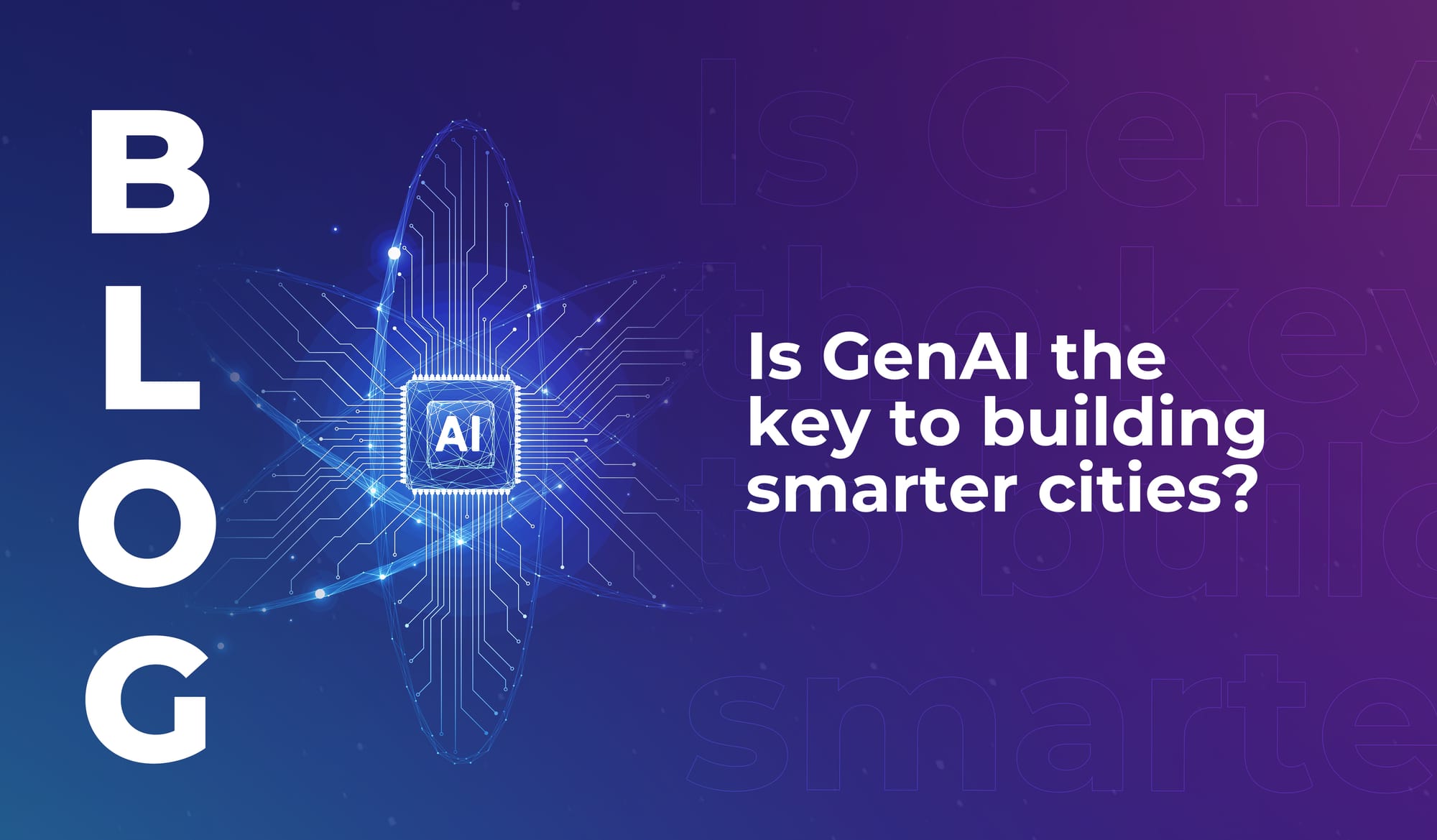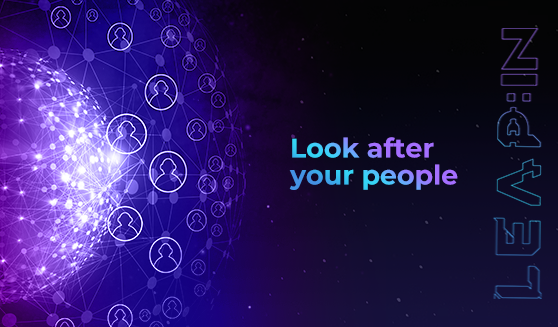
Is GenAI the key to building smarter cities?
Learn how generative AI is unlocking the true potential of digital twins – to make smart cities more efficient, inclusive, and citizen-focused.


Welcome to this week’s LEAP:IN newsletter. Each week, we unpack leader’s powerful quotes and decipher the tech landscape. With exclusive content from some of the world’s leading experts in AI, robotics, space, edutech, climate tech and more, read on to discover this week’s insights and subscribe to receive weekly updates direct to your inbox.
This week we’re quoting…
Guillaume Pousaz (CEO at checkout.com)
What Pousaz said:
“We want to find the intersection between doing good, and doing well, which means that not every dollar is worth making.”
This idea spoke to our hearts
Successful tech companies have the potential to grow big, and grow fast – so our industry talks about numbers a lot. Necessarily, of course.
But the idea that a major tech CEO recognises that some dollars just aren’t worth making, because of the negative impact they could have on people/society/planet, is important to us at LEAP.
It got us thinking about tech company culture. What’s the difference between working for a company that values profit over all else, and working for a company that strives to do good? How does that change the experience for everyone involved?
It’s actually good for your health
Research published in November last year found that workers in environmentally and socially responsible companies report, on average, better mental health.
Over the last few years, ESG indicators have increasingly been used to measure company performance. A 2021 meta-analysis conducted by NYU and Rockefeller Asset Management highlighted a growing body of evidence that good ESG management is linked to improved financial performance.
But LifeWorks Research Group’s Mental Health Index in August 2021 also found that ESG indicators and socially conscious credentials can improve mental health and productivity among the workforce.
If your company is working towards a positive impact, your team members are more likely to feel a sense of belonging. There’s a sense of psychological security and togetherness that creates the conditions for working hard and feeling good.
So your tech legacy will leave an impression on your people, too
Acknowledging that some dollars aren’t worth making, and choosing partnerships and investors aligned with your values – as well as creating products and services that can improve lives – doesn’t just leave a legacy for the future economy.
It leaves a more immediate impression on the people you work with. It can make them happier, more optimistic, and more motivated as they look to their own futures. And that’s huge.
And…
Saad Toma (General Manager at IBM)
What Toma said:
“Twenty years ago the prediction was that every company would become an internet company. Now people are saying every company will become an AI company.”
Is AI really so prevalent?
Yes. And it’s becoming more and more mainstream among big businesses all the time.
In December 2021 McKinsey published a global survey: The State of AI in 2021. It found that…
What are these companies using AI for?
According to the McKinsey survey the business functions with the highest rates of AI adoption in 2021 were service operations, product and service development, and marketing and sales.
The top three specific use cases were service-operations optimisation, AI-based product enhancement, and contact centre automation.
The largest percentage point increase in AI use was in marketing budget allocation, and spending effectiveness.
And how is AI improving business?
It’s increasingly evident that AI can have a real impact on a company’s bottom line – and that impact will grow as AI adoption continues.
According to McKinsey, there was a 5% year-on-year increase (from 22% to 27%) in the share of respondents reporting at least 5% of earnings attributable to AI.
And they also reported bigger cost savings from AI than in the previous year, across all AI uses. The biggest savings were from AI used in product and service development, marketing and sales, and strategy and corporate finance.
It’s not just hype
Writing for the Financial Times in May 2022, Esteve Almirall (Associate Professor at ESADE) suggested that AI adoption is more hype than reality – because (among other reasons):
“Acceleration demands new capacities, including both sufficient AI talent and ways to foster innovative practices through a more supportive, ‘can-do’ culture.”
This is true. And the human skills shortage is one of the key obstacles we face in rolling out unbiased, world-improving AI.
As Toma pointed out in his keynote at #LEAP22, we have a shortage of about 200,000 data scientists right now – and while AI can perform some of that work, AI also needs data scientists to ensure best practices.
But in terms of capacity, cloud tech is rising to the challenge. It’s making immense computer power accessible to more and more organisations and individuals – so everyone has the potential to drive AI development.

Learn how generative AI is unlocking the true potential of digital twins – to make smart cities more efficient, inclusive, and citizen-focused.

The smart cities of the future will use tech to lower emissions, cut urban temperatures, and improve quality of life in highly populated areas.

Discover the cities that rank highly for smart city preparedness, and learn why locally relevant innovation is more important than cutting-edge tech.

Learn how generative AI is unlocking the true potential of digital twins – to make smart cities more efficient, inclusive, and citizen-focused.

The smart cities of the future will use tech to lower emissions, cut urban temperatures, and improve quality of life in highly populated areas.

Discover the cities that rank highly for smart city preparedness, and learn why locally relevant innovation is more important than cutting-edge tech.